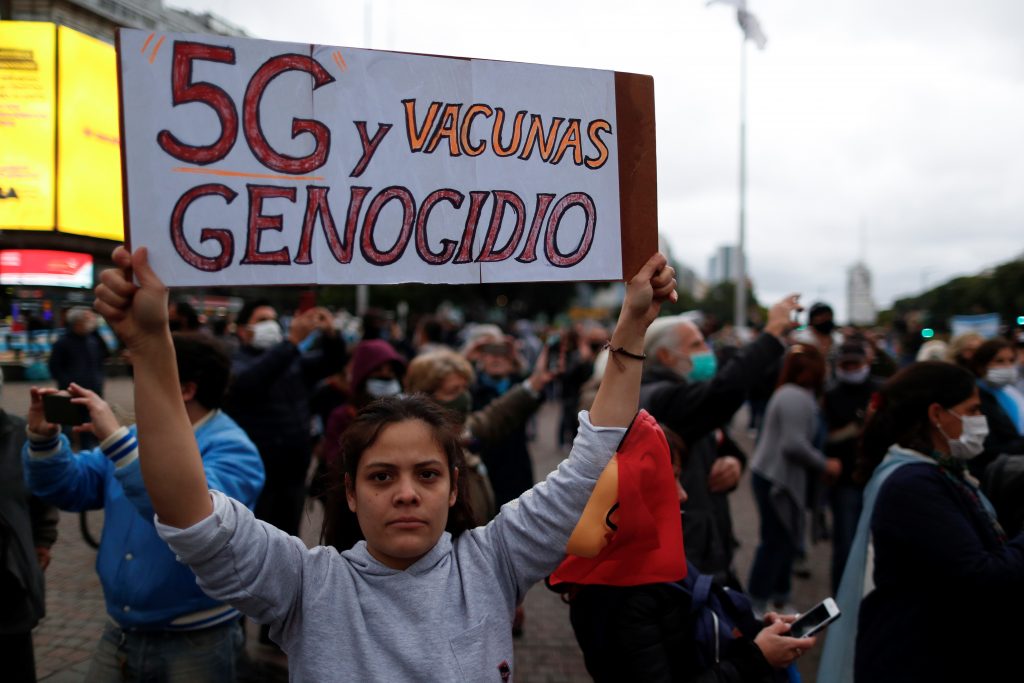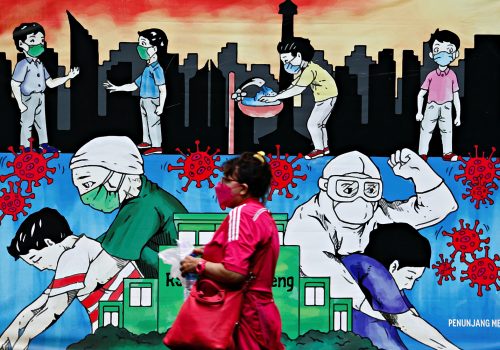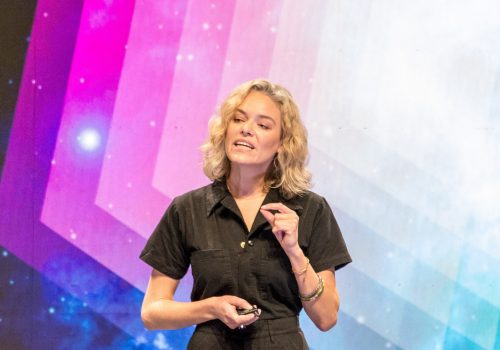If you want to understand the disinformation trends that will be coming next to US social-media feeds, visit less-developed countries. What you’ll find is a dynamic that New York Times reporter Sheera Frenkel likened to a car thief who perfects a strategy in less-policed areas before taking it to better-patrolled Beverly Hills. “In some ways, [what you see is] so much more egregious than what happens here in the United States,” Frenkel said Thursday at the 360/Open Summit, hosted by the Atlantic Council’s Digital Forensic Research Lab.
Frenkel, author of An Ugly Truth: Inside Facebook’s Battle for Domination, joined Casey Newton, the founder of Platformer, to discuss recent shifts in the spread of disinformation, how tech platforms can enhance accountability and transparency, and how journalists can work to foster trust with their audience.
Below are some of the key takeaways from their conversation.
The cutting edge of disinformation
- Aside from the overseas disinformation trends that may soon arrive in the United States, both Frenkel and Newton are seeing a rise in the export of disinformation narratives from the United States to the rest of the world, particularly in the case of anti-vaccine content in largely unvaccinated nations. “In some ways, I feel this responsibility to write a lot more about the rest of the world now, which unfortunately… I felt like I kind of ignored during much of the Trump presidency because what was happening here felt so insane,” Frenkel said.
- Reacting to this week’s news that the US Department of Justice had seized dozens of US website domains with ties to Iran, Newton worried that autocratic governments could use claims of disinformation to silence dissent. “I have no real doubt that they were [disinformation]—this was basically state-run media,” Newton said. But he added that other countries could view the US example as a license to indiscriminately ban content. “You can call anything disinformation; there is no standard of proof. And if you are an authoritarian… what a wonderful club you now have to go and beat your dissenters with.”
- After news outlets sought to serve an “insatiable” appetite for disinformation coverage driven by the 2020 US elections, Frenkel said, interest from readers has waned and editors are publishing fewer stories (although they are still asking for more sophisticated pieces). That could be a positive: Newton noted that simple reporting about disinformation campaigns can feel like “giving oxygen to the argument.” However, just because there is now “a collective holding of the breath,” as Newton put it, doesn’t mean the threat should be taken any less seriously: “You have some really smart people ringing the alarms.”
How platforms can step up
- Frenkel said that platforms realized “how effective they could be in deplatforming people” in light of reporting that former US President Donald Trump’s reach—which he had used to spread false election-fraud claims—was severely diminished after being banned from Twitter and Facebook.
- Discussing the ways Facebook has been exploited by bad actors to incite violence—in Myanmar, for example, where it was used to incite genocide—Newton worried that for-profit platforms are ill-equipped to deal with the ramifications of such speech. “This is the problem of hosting so much crucial political speech inside what are basically digital shopping malls,” Newton said. “The objective of the shopping mall is to open as many storefronts as possible, and everything else will be second to that.”
- There is a balance in instituting necessary regulations without stifling innovation. For Newton, one compromise would be to require that platforms demonstrate an ability to understand what their users are saying—a particular challenge in nations like Myanmar, where about one hundred languages are spoken. “Can you read what is being said there? If not, then you should not be allowed to open [in that country],” Newton said.
- While Facebook has dedicated more resources to the problem, it still is not transparent about basic matters such as how many content moderators the site has per user or per post in each language, Frankel noted. “It cannot just be that you have this situation—which we saw play out in India with the election as well—[where] with the sheer number of posts, it was almost impossible for Facebook to moderate in real time.”
What journalists wish you knew
- With local news outlets particularly suffering over the past decade and dozens closing during the pandemic, many people do not know reporters personally. Rather than meeting journalists at a high-school basketball game or a local awards ceremony, the vast majority of consumers see them only on TV and social media. “Now that we have all just become snarky abstractions on Twitter, of course people are going to distrust us,” Newton said.
- When she first began covering tech companies fresh off maternity leave in 2016, Frenkel would bring her four-month-old in a baby carrier to a Starbucks near Apple headquarters and ask patrons if they worked at the tech giant—and if they would be willing to talk with her. People “have to know you are real, that you are not just an email address or a LinkedIn message,” Frenkel said. She compared taking care of her sources to a marriage: a relationship that needs to have the long term in mind. The best sources, she said, are those with “a moral compass,” bringing stories to her out of a desire to confront wrongdoing.
- Frenkel believes more people would trust journalists if they understood the level of rigor that goes into the reporting process, from source-gathering to fact-checking to a no-surprises policy that always gives companies a chance to respond to tough stories. For that reason, she began An Ugly Truth by explaining that she and her co-author had interviewed more than four hundred people for the book. Newton outlines his reporting steps on his site so that readers can have a view into his truth-telling process. “We actually do have good processes in place to make sure we’re giving you accurate information,” Frankel said.
Nick Fouriezos is an Atlanta-based writer with bylines from every US state and six continents. Follow him on Twitter @nick4iezos.
Watch the full event
Further reading
Image: An anti-quarantine demonstrator holds a placard that reads "5G and vaccines genocide," during a protest against the quarantine measures in the city of Buenos Aires, amid the COVID-19 outbreak on May 30, 2020. Photo by Agustin Marcarian/Reuters.



